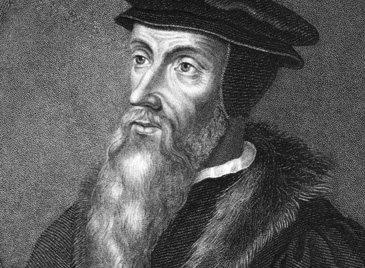
Generation (6)
the [eternal] generation of the Son: It is that eternal and necessary act of the first person in the Trinity, whereby He, within the divine Being, is the ground of a second personal subsistence like His own, and puts this second person in possession of the whole divine essence, without any division, alienation, or change.Systematic Theology, 94
While he was the first to explain the relation of the Father to the Son by employing the idea of eternal generation, he defined this so as to involve the subordination of the Second Person to the First in respect to essence... this... afforded a stepping-stone for Arius.The History of Christian Doctrines (84)
let us say that the Son was born from the Father before all time, and is forever being born from the Father, but, more fittingly, is forever born.The Sentences, Book 1, D-IX, 8.
In God knowledge and will are one and the same, as also are foreknowledge and predestination. Thus, although the nature and will of God are one, yet it is said that the Father generated the Son by nature, not by will, and that he is God by nature, not by will.The Sentences, Vol 1, 40
The Father generated that which he is; otherwise, if the Son is not that which the Father is, he is not a true Son.Contra Maximinum, bk1 c18
Get notified when new 'Generation' quotes come out?
Top Authors
1. Charles Spurgeon (133)
2. Thomas Watson (125)
3. J.C. Ryle (117)
4. John Calvin (104)
5. J.I. Packer (89)
6. John Piper (86)
7. George Swinnock (76)
8. A.W. Pink (68)
9. Louis Berkhof (63)
10. C.S. Lewis (59)
11. John Flavel (58)
12. B.B. Warfield (58)
13. Martyn Lloyd-Jones (56)
14. John Owen (54)
15. Gerald Bray (50)
16. Francis Schaeffer (49)
17. Thomas Brooks (47)
18. R.C. Sproul (46)
19. Matthew Henry (45)
20. Francis Turretin (43)
2. Thomas Watson (125)
3. J.C. Ryle (117)
4. John Calvin (104)
5. J.I. Packer (89)
6. John Piper (86)
7. George Swinnock (76)
8. A.W. Pink (68)
9. Louis Berkhof (63)
10. C.S. Lewis (59)
11. John Flavel (58)
12. B.B. Warfield (58)
13. Martyn Lloyd-Jones (56)
14. John Owen (54)
15. Gerald Bray (50)
16. Francis Schaeffer (49)
17. Thomas Brooks (47)
18. R.C. Sproul (46)
19. Matthew Henry (45)
20. Francis Turretin (43)
Top Topics
1. Sin (197)2. Scripture (133)
3. Prayer (131)
4. Preaching (115)
5. Faith (113)
6. Gospel (92)
7. Sabbath (84)
8. Suffering (79)
9. Salvation (73)
10. Church (71)
11. Law (61)
12. The Law (58)
13. Truth (52)
14. Justification (51)
15. Christ (50)
16. Love (46)
17. Grace (43)
18. Theology (43)
19. Creation (40)
20. Fear (37)
21. Holiness (37)
22. Heaven (35)
23. Sanctification (35)
24. Children (34)
25. Pride (34)
26. Ten Commandments (34)

